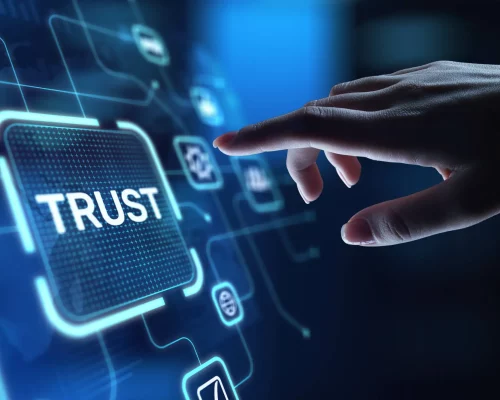Building a Sustainable Future Through Circularity
Sustainability is no longer optional—it’s a business imperative. As industries face growing pressure to reduce waste, optimise resource use and improve resource efficiency, the transition to a circular economy is becoming essential.
Moving away from the traditional “take, make, dispose” model requires rethinking how resources are used, maximising longevity, and minimising environmental impact.
Rethinking Resource Use for a Sustainable Economy
Circular economy principles prioritise resource reuse, extending product lifespans, minimising waste, and reducing reliance on raw materials. Businesses across industries—from logistics and manufacturing to IT and telecoms—must adopt sustainable practices that align environmental responsibility with operational efficiency.
Technology plays a key role in this shift. Optimised IT infrastructure, as-a-service models, and lifecycle management solutions help reduce hardware waste, improve energy efficiency, and ensure that assets are refurbished, repurposed, or recycled. By integrating these strategies, businesses can drive both environmental and commercial benefits, enhancing resilience in a rapidly evolving market.
Data: The Key to Net Zero
Achieving net zero requires real-time visibility into resource consumption, particularly Scope 3—the most complex and often the most significant emissions category. Organisations need accurate data to track their environmental impact, identify inefficiencies, and make informed sustainability decisions.
Advanced monitoring tools now offer real-time insights into operational sustainability across supply chains. AI-driven solutions help businesses detect areas for energy optimisation, improve resource utilisation, and comply with evolving environmental regulations. Beyond compliance, data-driven transparency strengthens trust with customers, investors, and stakeholders—positioning businesses as sustainability leaders.
A Balanced, Data-Driven Approach to Sustainability
Building a sustainable future isn’t just about meeting targets—it’s about creating smarter, more resilient businesses. By cutting waste through circularity, leveraging data-driven insights, and optimising resource management, organisations can drive sustainability without compromising efficiency or profitability.
For a closer look at how circularity and real-time data are shaping sustainability strategies, read our Chief Digital and Marketing Officer, Paul Warburton’s article for Logistics Business: Sustainability through Circularity and Real-Time Solutions
Putting Emotion into AI for Real Business Value
NSC Global believes that while artificial intelligence (AI) has become a powerful business tool, its true potential is only realised when it is combined with human emotion and judgment.
What is Infrastructure-as-a-Service (IaaS)?
IaaS provides flexible, cost-effective infrastructure management, reducing waste, simplifying operations, and supporting evolving business needs.
How does Device-as-a-Service (DaaS) differ from leasing?
Leasing funds hardware. DaaS delivers outcomes. Learn how Device-as-a-Service can simplify IT management and reduce total cost of ownership.
What is Device-as-a-Service (DaaS)?
Understand how Device-as-a-Service transforms how organisations source, manage, and secure technology in a changing world.
Get in touch
Get in touch Discover how NSC’s scalable, innovative IT services can streamline operations, reduce costs, and drive sustainable growth. Contact us today.
Get in touch










